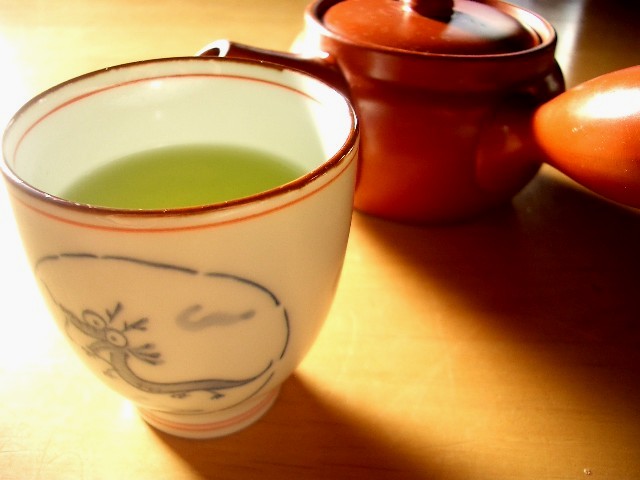In research published in the medical journal Experimental gerontology, investigators in China gave worms tea to test their theory that tea would provide the worms anti-aging, anti-oxidation, and anti-Alzheimer’s protective effects.
The Chinese investigators examined puer tea (a traditional Chinese fermented tea), black tea, and green tea. They found that puer tea, black tea and green tea all increased the lifespan of worms, postponed Aβ-induced progressive paralysis in Alzheimer’s disease transgenic worms (the accumulation of toxins and plaque), and improved the tolerance of worms to the oxidative stress induced by the heavy metal chromium. In other words the tea is acting as chelator on the worms.
The conclusion of this study: “tea water extract provides benefits of anti-aging, anti-alzheimer’s disease and anti-oxidation”.1
But what makes the tea work so well?
In a new study from researchers at the Laboratory of Functional Chemistry and Nutrition of Food, College of Food Science and Engineering, Northwest A&F University, Yangling, China, investigators made a connection.
Epigallocatechin-3-gallate (EGCG), the major polyphenol in green tea, possesses antioxidant, anti-inflammatory, and cardioprotective activities; however, few reports have focused on its potential effect on cognitive disorders. The researchers speculated that EGCG would provide the answer.
- It is well documented that obesity increases the risk of insulin resistance and age-related cognitive decline. One factors is chronic inflammation.
In this study, the researcher’s goal was to investigate the protective effects of EGCG treatment on insulin resistance and memory impairment induced by a high-fat and high-fructose diet.
To do so they randomly assigned 3-month-old mice to 3 groups with different diets: control group diet, high-fat and high-fructose diet, and high-fat and high-fructose diet plus EGCG group.
What they found was the EGCG in green tea reduced and weakened high-fat and high-fructose diet-induced neuronal damage.2
What works for worms and mice can work for humans
In a 2014 study, Professor Christoph Beglinger from the University Hospital of Basel and Professor Stefan Borgwardt from the Psychiatric University Clinics found that green tea extract increases the brain’s effective connectivity, meaning the causal influence that one brain area exerts over another. This effect on connectivity also led to improvement in actual cognitive performance: Subjects tested did significantly better for working memory tasks after the admission of green tea extract.
For the study healthy male volunteers received a soft drink containing several grams of green tea extract before they solved working memory tasks. The scientists then analyzed how this affected the brain activity of the men using magnetic resonance imaging. The MRI showed increased connectivity between the parietal and the frontal cortex of the brain. These neuronal findings correlated positively with improvement in task performance of the participants. “Our findings suggest that green tea might increase the short-term synaptic plasticity of the brain”, says Borgwardt.3
Amazingly, another new 2017 study says remembering how to make tea can help people with dementia of the Alzheimer-type with task performance. In an experiment recorded in the journal Neuropsychological rehabilitation, doctors in the United Kingdom found that Alzhimer’s patients who could remember how to make tea and be able to describe how to make tea to researchers could provide those researchers with important clues in helping Alzheimer’s patients with remembering how to do everyday tasks.
1 Fei T, Fei J, Huang F, Xie T, Xu J, Zhou Y, Yang P. The anti-aging and anti-oxidation effects of tea water extract in Caenorhabditis elegans. Experimental Gerontology. 2017 Jul 25.
2 Mi, Y., Qi, G., Fan, R., Qiao, Q., Sun, Y., Gao, Y., Liu, X. EGCG ameliorates high-fat– and high-fructose–induced cognitive defects by regulating the IRS/AKT and ERK/CREB/BDNF signaling pathways in the CNS.
3. https://www.eurekalert.org/pub_releases/2014-04/uob-gtb040714.php
4 Balouch S, Rusted JM. Can verbal instruction enhance the recall of an everyday task and promote error-monitoring in people with dementia of the Alzheimer-type? Neuropsychological rehabilitation. 2017 Feb 17;27(2):239-62.ng F, Xie T, Xu J, Zhou Y, Yang P. The anti-aging and anti-oxidation effects of tea water extract in Caenorhabditis elegans. Experimental Gerontology. 2017 Jul 25.
